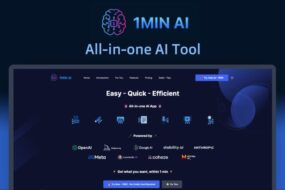
The AI Paradox: Why Quality Trumps Speed in Delivering Lasting Success
In an era where AI is touted as the future, a stark reality emerges: most AI projects fail, with a staggering 70-85% failure rate—twice that of traditional IT ventures. The culprit? Poor data quality, inadequate governance, and unclear business objectives, not technological shortcomings. This paradox highlights a critical shift needed in corporate strategy.
The Data Dilemma
Data is the backbone of AI, yet its quality often undermines potential. Data scientists, spending 40% of their time hunting for clean data, are hindered by this inefficiency. Inaccurate data leads to flawed models and wasted resources, costing companies 12% of annual revenue—or $12 million per $100 million. This financial hemorrhage underscores the imperative of investing in robust data infrastructures.
Governance: The Missing Link
Effective governance is crucial for aligning AI initiatives with business goals. The rise of the Chief AI Officer (CAIO) exemplifies this shift. CAIOs, distinct from CTOs, focus on governance, data standards, and ROI accountability. Companies appointing CAIOs are likelier to see ROI, with top performers achieving up to 10x returns. This role ensures AI projects are strategic, measured, and trustworthy.
Quality Leadership: A Strategic Advantage
Quality leadership prioritizes reliable data and governance over rapid deployment. Organizations with mature governance frameworks deploy AI three times faster with higher success rates.Embedding quality checkpoints into product teams ensures consistency and trust. This approach not only enhances efficiency but also fosters customer trust, a CEO-identified critical factor.
Competitive Edge
While only 4% of companies achieve significant AI returns, this minority offers a roadmap for others. By focusing on data and governance, businesses can leapfrog ahead. Investing in quality yields measurable results, positioning companies to thrive as AI adoption evolves.
In conclusion, the AI success narrative is rewritten by prioritizing data quality and governance. Quality leadership, guided by roles like the CAIO, transforms AI initiatives from costly experiments into strategic assets. As companies embrace these principles, they typealias themselves for a future where AI delivers tangible, lasting value.







No Comments